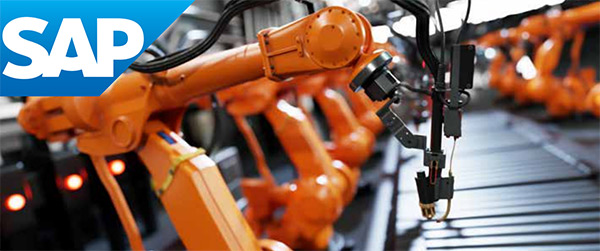
In the world of technology, we all hear the words “digital transformation” around the clock. It may be a buzzword, but digital transformation is no joke. IDC predicts that digital transformation spending will eat up 53 percent of IT budgets by 2023, approaching $7.4 trillion between 2020 and 2023. With all this transformation, it’s no surprise that ERP has seen significant recent changes in what it can do for organizations across more than 25 different industries.

Introducing: Intelligent Technologies
Deploying intelligent technologies like
machine learning (ML), artificial intelligence (AI) and robotic process
automation (RPA) has transformed ERP for good. These technologies are elevating
ERP from driving function to being completely fundamental to the business.
In the past, ERP was purely an administrative engine, responsible for functions like pulling reports and organizing data. ERP’s core was predominantly focused on finance functions, with the majority of users spending time on financial accounting, closing and reporting. Today, thanks to intelligent technologies, ERP plays a much more pivotal role in business processes. Intelligent ERP systems can identify trends and make predictions, recommend actions, process complex data and run autonomously. Instead of users needing to re-write the rules every time feedback warrants it, AI can enable the system to self-correct in real-time, allowing operations to run more smoothly and saving precious employee hours. Because of this, ERP adoption and innovation are spreading beyond the walls of finance to areas such as manufacturing, service and purchasing, HR, logistics and sales.
How it Works
The value of intelligent ERP is best
illustrated when embedded in processes. Take sales, for example. For a sales
manager working on inquiries, a bot can now pull data from email and interface
systems so an RPA tool can receive inquiries and leverage the ERP to look for
specific sales prospects for a customer, serving up suggestions from data
that’s already been provided. This performance data can allow the sales manager
to identify the best potential options for that customer on-the-spot. RPA
embedded intelligence can also alert a sales manager if any information from an
online form is missing and can generate a quote that can be sent to a prospect.
Once the system works on a quote, situational handling takes over and alerts
the handler, who can get inside of the data to provide action.
Creating Value
The level of intelligence that AI, ML, and RPA lend to ERP can drive significant business value. While intelligent ERP can provide tremendous customer insights, it’s important to also remember the greater business value for employees. With intelligent ERP, businesses can reduce the amount of tedious, repetitive tasks designated to employees and instead give these workers the opportunity to focus on the insights that the system provides.
In the majority of business use cases,
automating repetitive human tasks such as grabbing and downloading documents
and inputting the data into systems – things that humans might need to do more
than 60 times per day – is a huge benefit not only to individual employees but
to the organization as a whole. A high degree of automation frees employees to
do more meaningful work, allowing them to generate more value than ever.
AI is also enabling more intuitive and assistive user interfaces for these employees, creating visual representations pulling from historical data and market information to allow workers to quickly glean insights from complicated data sets. This opens doors for smarter working, more accurate decision-making, and better forecasting. In fact, according to IDC’s Alexandros Stratis, “An assistive user interface is key in enabling today‘s knowledge workers to become the digital knowledge workers of tomorrow, and though true conversational interfaces are a future goal, the quality of the interaction will improve over time, enabling flatter organizations, a fluid work environment, and goal-oriented and redefined back-office processes.”
The Bottom Line: Trust
Over the next three to five years, we’ll continue to see ERP evolve. Technology is advancing and customers are becoming savvier, standardizing core processes so they can be more easily automated. However, getting organizations to reap the full benefits of intelligent ERP ultimately comes down to trust – how much customers trust the software and the algorithms behind it.
To establish this trust, vendors need to be able to provide traceability to their clients in case any of the algorithms go wrong. If a user comes to a prediction that didn’t deliver the desired results, they need to have access to insights on why the system came to that conclusion so they can then adjust the algorithm. Traceability that allows users to find out why things went the wrong will built trust and also allow further optimization. Building trust takes time, but in this case, it is well worth the investment. Ultimately, when users are comfortable leaning on intelligent ERP systems as a way to make them smarter and more effective, they will hold the key to more efficiency, better decision-making, and greater overall impact.

